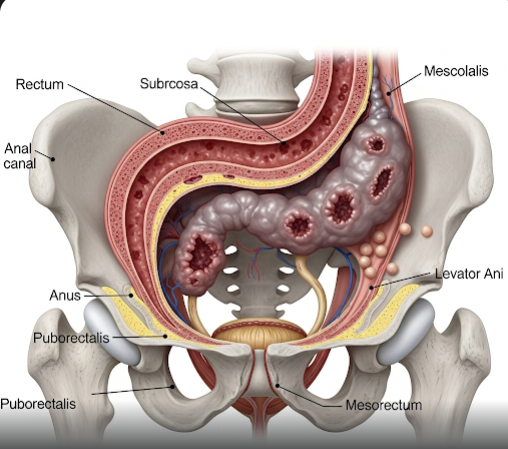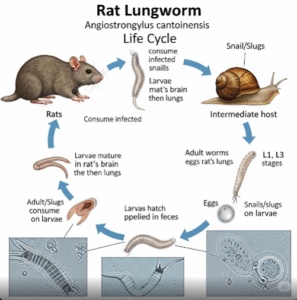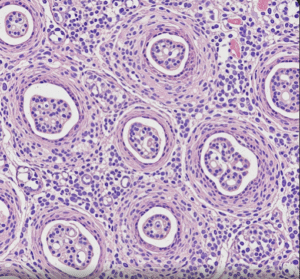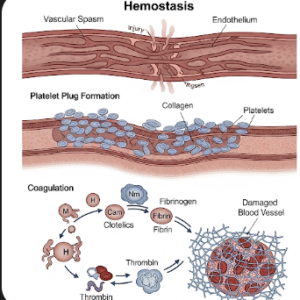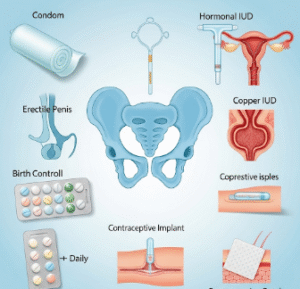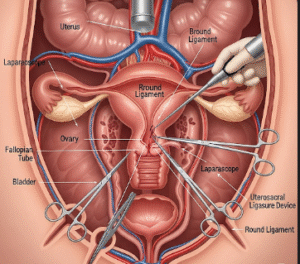Overview
Rectal cancer is a malignant tumor arising from the lining of the rectum, the last several inches of the large intestine before the anus. It is one of the most common gastrointestinal cancers worldwide and in Korea. Early detection and comprehensive treatment are crucial for improved survival rates. Korean medical centers offer advanced diagnostic techniques, surgical options, chemotherapy, and radiation therapy tailored to each patient.
What is Rectal Cancer?
Rectal cancer develops when abnormal cells in the rectal mucosa grow uncontrollably, forming tumors. It often starts as benign polyps that can become cancerous over time. Rectal cancer is distinct from colon cancer based on tumor location and may have different treatment approaches.
Symptoms
- Rectal bleeding or blood in stool
- Change in bowel habits (diarrhea, constipation, or narrowing of stool)
- Abdominal or pelvic pain
- Feeling of incomplete bowel evacuation
- Unexplained weight loss
- Fatigue due to anemia
Causes
- Genetic mutations causing abnormal cell growth
- Progression from adenomatous polyps
- Chronic inflammation of the colon (e.g., ulcerative colitis)
- Lifestyle factors such as diet and smoking
Risk Factors
- Age over 50 years
- Family history of colorectal cancer or polyps
- Personal history of inflammatory bowel disease
- High-fat, low-fiber diet
- Sedentary lifestyle and obesity
- Smoking and heavy alcohol use
Complications
- Local tumor invasion causing bowel obstruction
- Metastasis to lymph nodes, liver, lungs, or other organs
- Anemia from chronic bleeding
- Impact on bowel function and quality of life
Prevention
- Regular screening colonoscopy starting at age 50 or earlier if at risk
- Healthy diet rich in fiber, fruits, and vegetables
- Regular physical activity
- Avoidance of tobacco and excessive alcohol
- Early treatment of precancerous polyps
Treatment Options in Korea
Diagnosis
- Colonoscopy with biopsy to confirm diagnosis
- Imaging studies (CT, MRI, PET scans) to stage the cancer
- Blood tests including tumor markers (CEA)
Medical Treatments
- Surgery (low anterior resection, abdominoperineal resection) to remove tumors
- Chemotherapy for advanced or high-risk cases
- Radiation therapy, often combined with chemotherapy, especially for locally advanced tumors
Surgical or Advanced Therapies
- Minimally invasive laparoscopic or robotic-assisted surgery widely available
- Multidisciplinary care involving surgeons, oncologists, radiologists
Rehabilitation and Support
- Stoma care education if needed
- Nutritional support and counseling
- Psychological support and cancer survivorship programs
- Regular follow-up for recurrence monitoring

